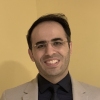With the Assad regime dismantled in Syria, the region’s geopolitical landscape is entering a critical phase. For Israel, this moment demands a strategic shift in alliances, one that prioritizes long-term stability over transient gains. Aligning with the incoming Islamist regime in Syria risks consequences, potentially worse than those posed by Hamas. These groups, rooted in unyielding ideologies, remain consistent in their hostility toward Israel. As the saying goes, “Ideologues seldom change their tune.” Extremist terrorist factions, led by Hay’at Tahrir al-Sham (HTS) and backed by the Islamist Turkey and Qatar, already have been designated as terrorist organizations by the United States. Their origins trace back to Islamic State of Iraq and Syria (ISIS) and Al-Qaeda, and their threat is far from over.
Against this backdrop, Rojava—the self-governed Kurdish region in Syria—stands out as a beacon of hope and stability. Since the outbreak of the Syrian civil war, the Kurds have established the Rojava self-rule administration. This entity has served as a sanctuary for all ethnic and religious minorities, fostering coexistence and peace under Kurdish leadership since 2012. Although its governance model has yet to be tested through democratic elections, the administration has demonstrated stability and organizational management, military capabilities, with a trained army, the Syrian Democratic Forces (SDF), under the command of General Mazloum Abdi.
Rojava, the self-governed Kurdish region in Syria, stands out as a beacon of hope and stability.
However, Rojava has faced aggression. Since their 2018 invasion, Turkish forces occupied parts of the region, implementing anti-Kurdish policies while pursuing ethnic cleansing and Turkification. Turkey’s interventions, far removed from NATO’s democratic values, have failed to yield positive outcomes. Meanwhile, Turkey’s role in propping up extremist groups underscores its deviation from Western principles, posing significant risks to the Middle East.
The Kurds, long subjected to deadly stereotypes—branded as saboteurs, demons, terrorists, “kafir” (“infidels”) and agents of imperialism—instead have proven to be steadfast allies of the West and its principles. Despite being excluded from every peace negotiation dominated by Iran, Turkey, and Russia that perceive Kurdish autonomy as a threat, the Kurds have maintained their commitment to democratic ideals and stability. Even after being abandoned by the Trump administration, the Kurds remained reliable partners to the United States, exemplifying their resilience and loyalty.
Now is the time for the world, particularly Israel and the United States, to recognize Rojava’s strategic significance. An alliance between Israel and Rojava would not only safeguard Israel’s borders from Islamist extremism but also lay the groundwork for a stable and progressive New Middle East. On November 10, 2024, Israeli Foreign Minister Gideon Sa’ar highlighted such relationship, urging Israel to formalize relations with the Kurdish nation. Establishing a diplomatic mission in Hesekê (Hasakah), the de facto capital of Rojava, would be a historic step toward fostering mutual security and prosperity.
Both the U.S. and Israel should consider offering military support to defend the Kurds.
Formal recognition of Rojava would open the door to vital military aid, strengthening its defense capabilities and ensuring its security against regional threats. With recognition, the Kurdish government could access arms, training, and intelligence sharing, vital for maintaining stability in a volatile region. Given its strategic importance, both the U.S. and Israel should consider offering military support to defend the Kurds, particularly in the face of external aggressions from hostile neighbors. Kurdish forces are highly experienced in ground combat, but they need anti-aircraft weapons to counter aerial threats, especially from Turkey and Iran. In addition, Iran’s Shia Crescent is at its weakest point; recognizing Rojava will help shatter it once and for all.
The Kurdish struggle for self-determination mirrors the Jewish people’s own history, creating a natural partnership rooted in shared ideals and aspirations. The time has come to embrace this strategic alliance. Recognizing Rojava as an autonomous state of Kurdistan is a geopolitical necessity; Israel cannot tolerate an extremist Sunni Islamic regime on its borders. A strategic corridor between Israel and a future Kurdish state is crucial for realizing this goal.
History calls. Israel and the Kurds, two historically resilient peoples, must seize this moment to build a future defined by security, stability, democracy, and mutual respect.








